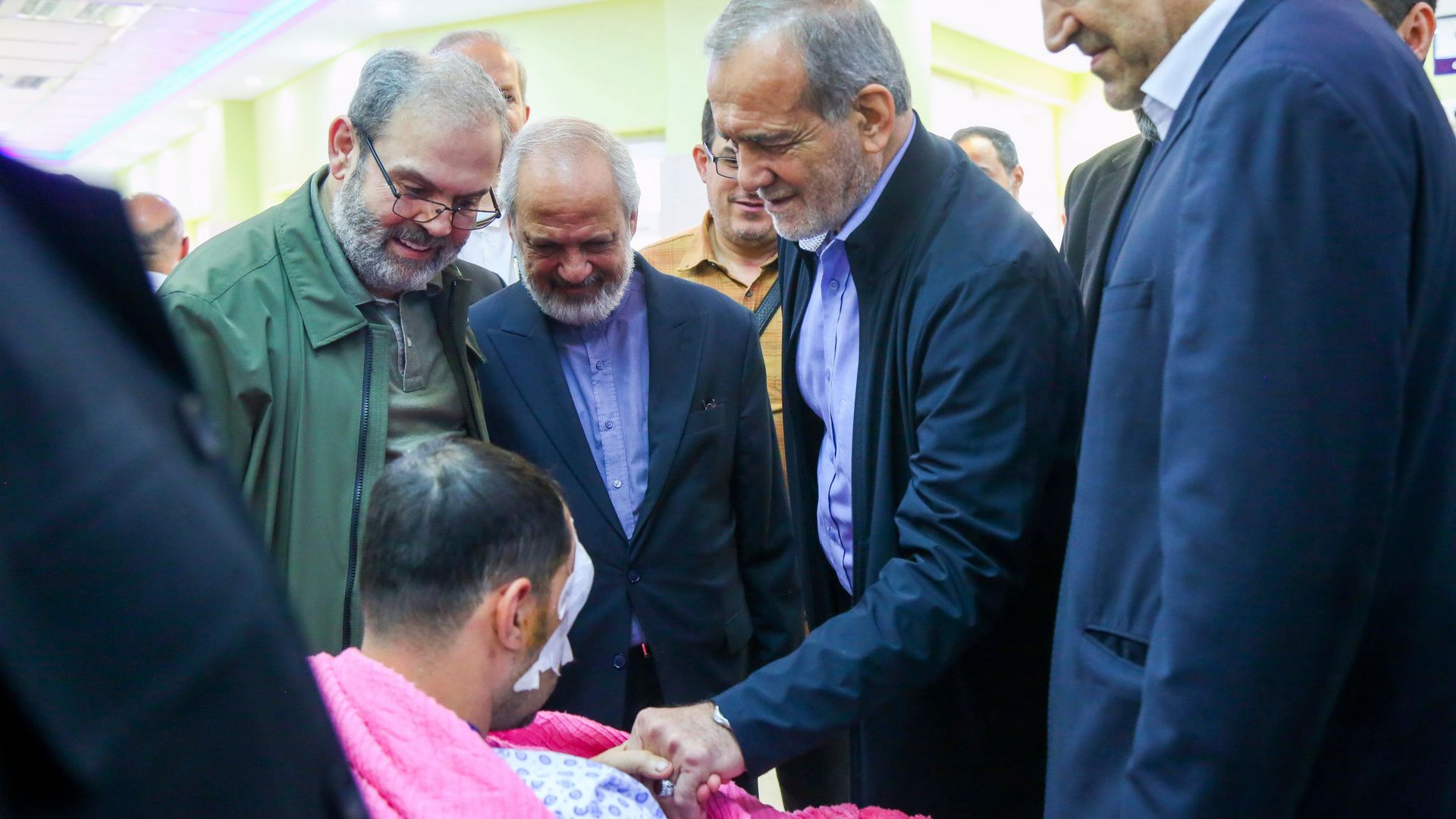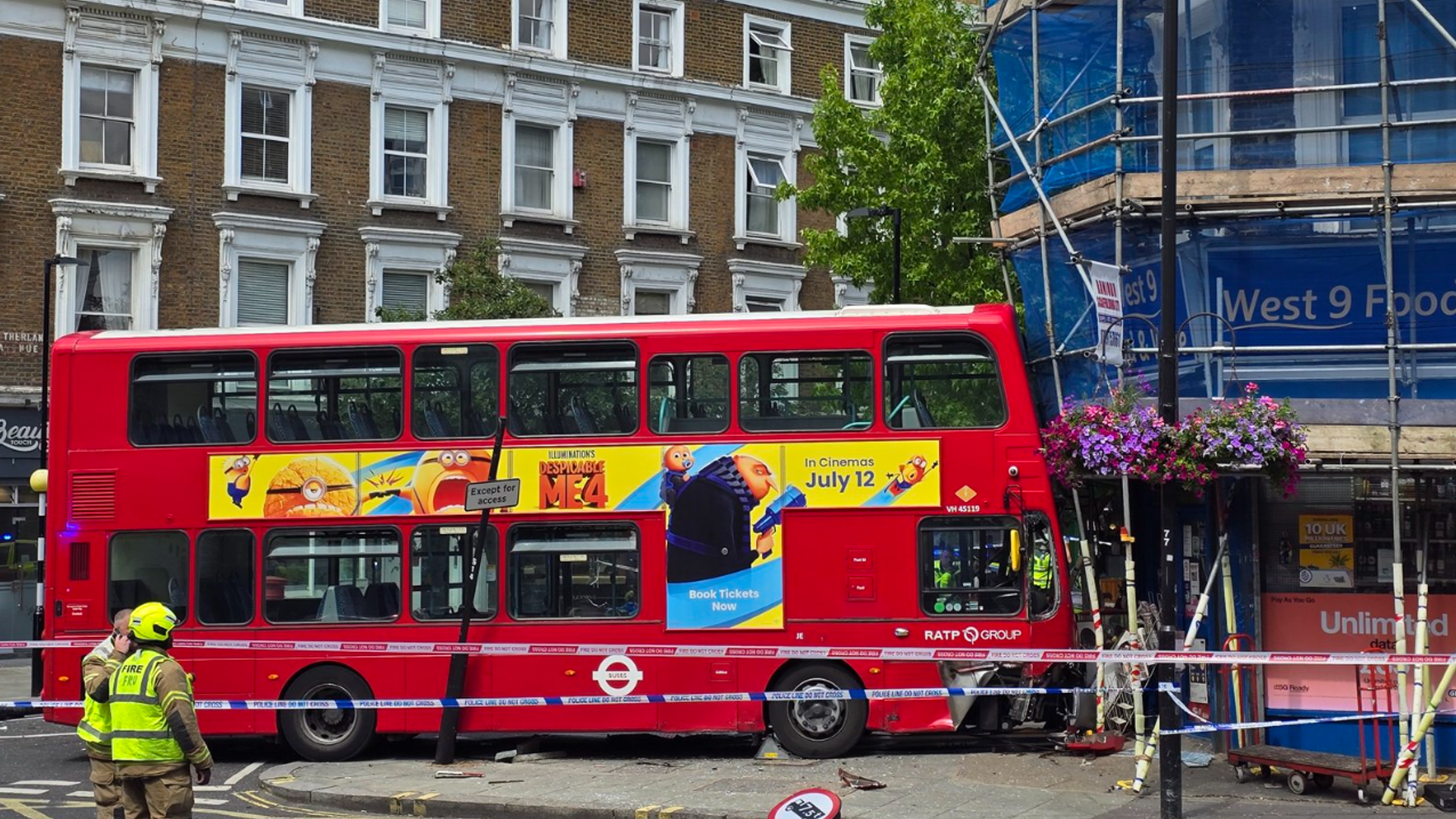Even after exploding pagers, thousands of casualties and the killing of a top Hezbollah commander in an Israeli airstrike, the UK and other allies are still hoping that all-out war between Israel and the Iran-backed militant group in Lebanon can be avoided.
But events are unfolding at a dizzying pace – far faster than governments can react – and each new attack raises the chance of escalation into wider, regional confrontation.
A big unknown is how Iran will respond.
Hezbollah is regarded as its most powerful proxy – and Tehran directly suffered from the pager bombs with its own ambassador to Lebanon being injured.
Adding to the pressure, the Iranian regime has yet to carry out any major retaliation for the killing by Israel of a top Hamas leader – Ismail Haniyeh – in Tehran in July.
Iran launched a barrage of drones and missiles against Israel in April in response to an attack on an Iranian consular building in Damascus. Israeli air defences, bolstered by the US, the UK and other allies, ensured that strike failed.
Tehran will not want to fall short a second time – or else risk looking weak.
Doing nothing is also not an option.
The same is true for Hezbollah.
Please use Chrome browser for a more accessible video player
But a calculation by Western allies when considering the timing and scope for Hezbollah’s next move appears to be that the group’s ability to retaliate in any meaningful way for the damage it has suffered is in disarray, following the targeting of thousands of its fighters’ pagers and walkie-talkies.
Israel is accused of turning the devices into remotely detonated bombs in an unprecedented attack on Tuesday and Wednesday that left dozens of people dead and thousands wounded across Lebanon, including an undisclosed number of Hezbollah members. Israel has neither confirmed nor denied its involvement.
The blasts also devastated the group’s communication channels making it much harder to muster a speedy response – though Hassan Nasrallah, the leader, has vowed retribution.
A second factor behind the West’s hope for calm heads is a belief that neither Israel nor Hezbollah – or Iran – want a full-blown war.
Read more:
UK fears Britons might need evacuating from Lebanon
Top Hezbollah commander ‘killed in Israeli strike’
Please use Chrome browser for a more accessible video player
Be the first to get Breaking News
Install the Sky News app for free
Israel does not yet appear to have the scale of troops on its northern border that would be needed for a large-scale ground offensive – though a ground attack is only one option.
Only striking from the air is another.
On Thursday, Israel Defence Forces launched their most intense barrage of airstrikes into southern Lebanon since the start of this latest round of hostilities almost a year ago.
The Israeli government has said it wants to enable tens of thousands of its citizens to return to their homes close to the border with Lebanon in the north from where they were forced to flee in the wake of increased Hezbollah rocket attacks.
At the same time, Nasrallah has promised to prevent this from happening, which puts the two sides on a direct collision course.
It means the risk of escalation remains high.
Keep up with all the latest news from the UK and around the world by following Sky News
Against such uncertainty, David Lammy, the British foreign secretary, chaired a meeting of the government’s emergency COBRA committee on Friday.
He discussed the crisis and the UK’s ability to deal with what would be a hugely complex and risky evacuation operation of British nationals from Lebanon should the situation deteriorate significantly.
The previous evening, he had called for an immediate ceasefire by both sides following a meeting in Paris with his American, French, German and Italian counterparts.
But less than 24 hours later, Israel said it had killed Ibrahim Aqil, one of Hezbollah’s most senior commanders, in a strike on a southern suburb of Beirut – another significant blow to the group and yet one more reason for Hezbollah and Iran to want to retaliate.








